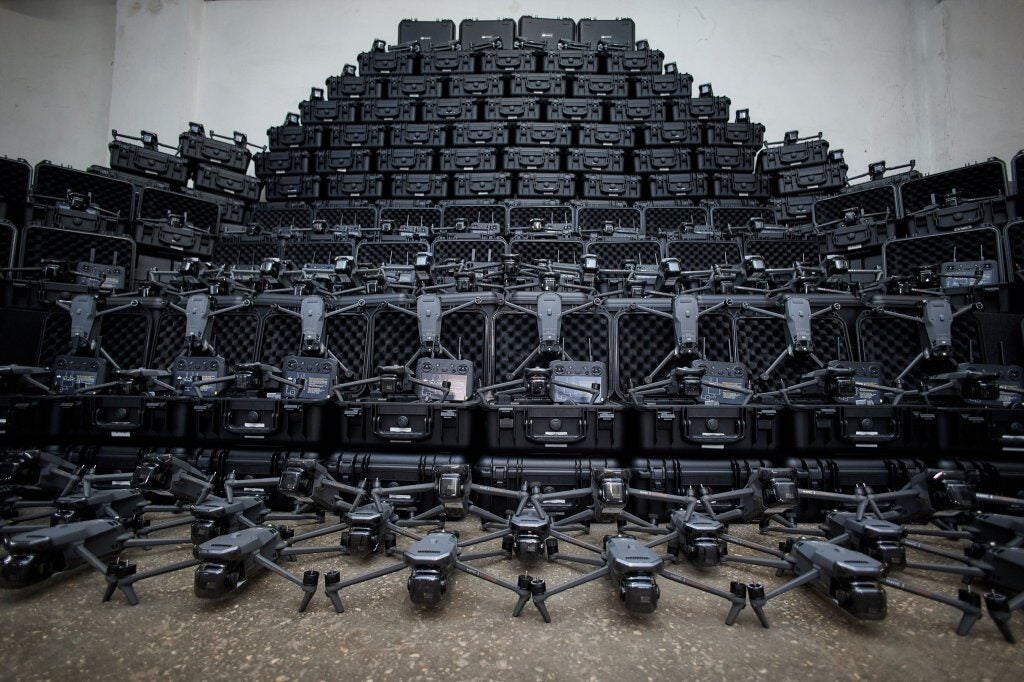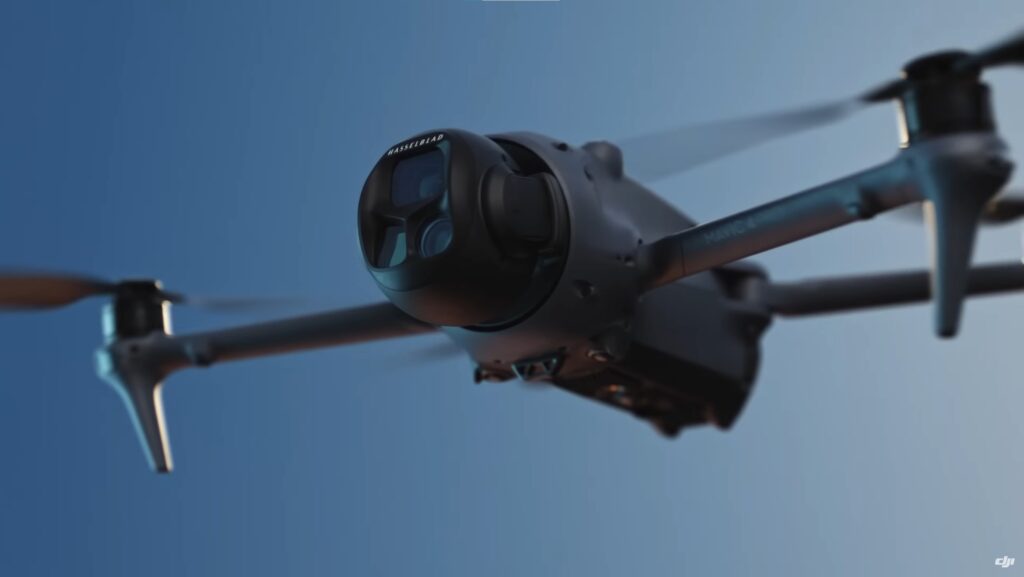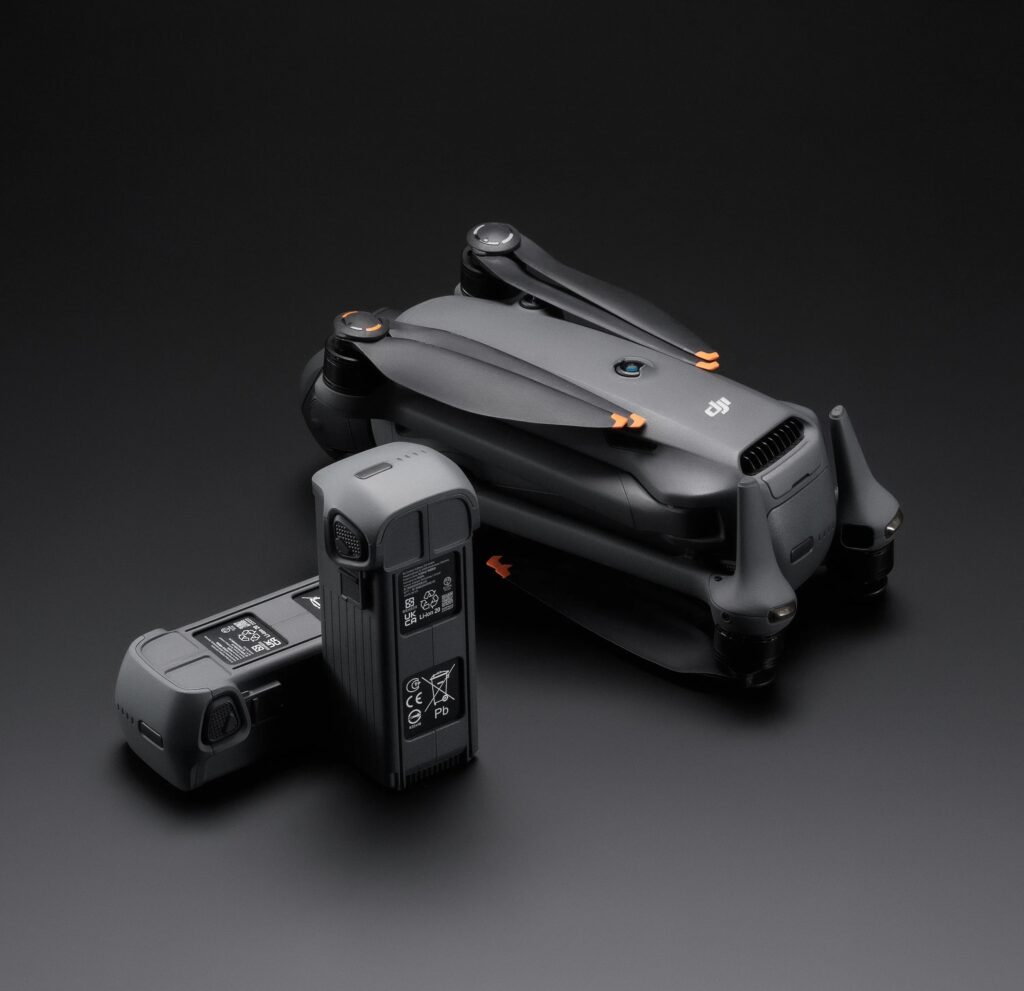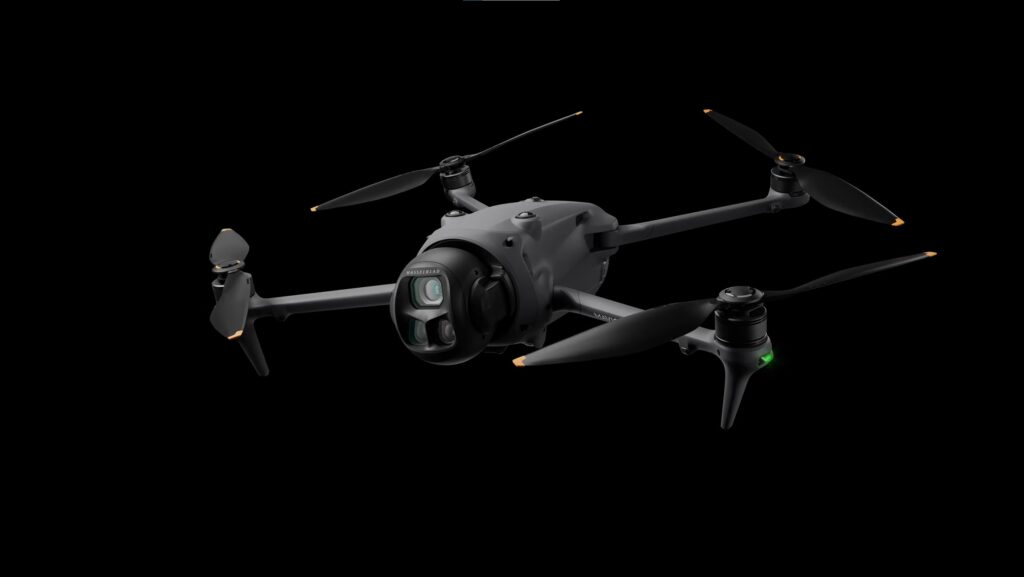DJI Releases Revolutionary Mavic 4 Pro but is Blocked from US Market
After years of anticipation DJI has released its new flagship drone, the Mavic 4 Pro. While intended for the civilian filmmaker market DJI’s products have been at the center of the consumer drone warfare revolution since the beginning when DJI Phantoms were used by ISIS to form the first drone bomber units.

The role of DJI drones in warfare expanded to an unprecedented level with the Russian invasion of Ukraine in 2022, where both sides extensively deployed Mavic drones as either a recon system or more controversially as bombers. The drone bomber footage became perhaps the most iconic imagery of the war with modified Mavic 3s forming the core of that bomber force. It is likely that the Mavic 3 was the most numerous drone in Ukraine until the use of FPVs became more common.
Now the legendary Mavic 3 has a successor, the Mavic 4 Pro which expands on the drone’s capabilities in almost every way. Perhaps the most significant feature is a forward rather than downward mounted camera gimbal. Typically Mavic’s are only able to elevate their cameras a few degrees upward while the Mavic 4 has 70 degrees of elevation. This dramatically increases situational awareness above the vehicle which was previously a blind spot often exploited in quadcopter vs. quadcopter combat occasionally seen over Ukraine.

Mavic 4 boasts an increased flight time of 51 minutes and top speed of 90kph over the Mavic 3’s 43 minutes and 75kph thanks to aerodynamic improvements. Connectivity is increased as well with a tested range of 30km over Mavic’s 3 15km.

However if you live in the US they are not available for purchase thanks to a block by US Customs and Border Protection due to an ongoing spat between DJI and Congress. This conflict orbits around Congress’ “Countering CCP Drones Act” which seeks to ban the import of drones associated with the Chinese Communist Party due to suspected intelligence collection. The total ban was ultimately not included in this year’s National Defense Authorization Act (NDAA) allowing for older models to remain on sale, however, it did call for a risk assessment on DJI leaving the door open to a future ban.
DJI rejects these concerns and claims it is being unfairly targeted. As with any Chinese company DJI has close commercial relations with the CCP as is the nature of the political-economic system. However, DJI provides, in particular and most controversially, surveillance product to the PRC for use in Xinjiang according to the Uyghur Human Rights Project.

